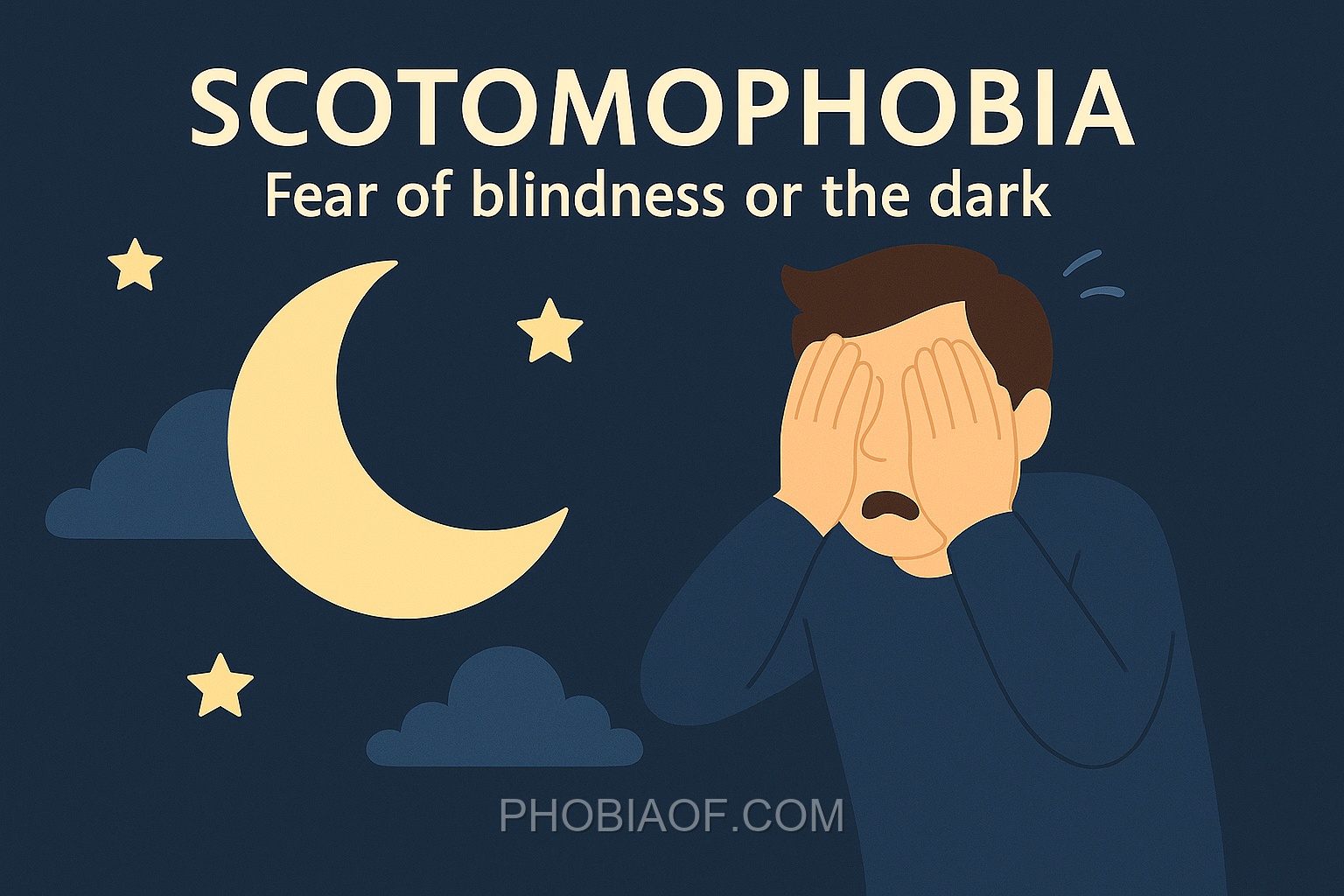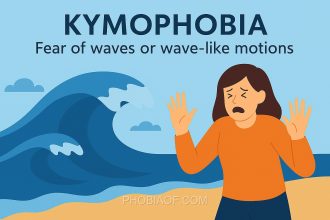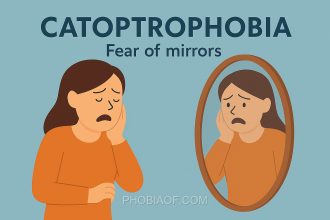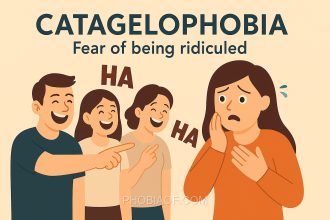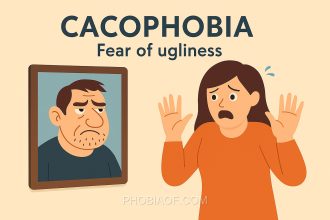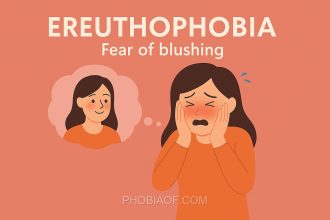Have you ever felt uneasy when the lights go out or worried about the thought of losing your sight? If so, you might be familiar with a feeling that many people experience but may not know by name: Scotomophobia.
Scotomophobia is a term used to describe the fear of blindness or darkness. The word itself comes from the Greek roots “scoto,” meaning darkness, and “phobia,” meaning fear. This fear can manifest in varying degrees of intensity, from mild discomfort to overwhelming anxiety, and can significantly impact a person’s daily life.
For individuals with scotomophobia, the thought of losing their vision or being enveloped in darkness can trigger a deep sense of panic. This fear might lead to behaviors such as avoiding dark environments or constantly seeking reassurance about their eyesight. The impact of scotomophobia can be profound, affecting both mental health and day-to-day activities.
Understanding this phobia is the first step towards managing it, and it’s important to approach it with empathy and support. If you or someone you know is dealing with scotomophobia, seeking professional guidance can provide strategies to cope and reduce the fear’s impact.
Causes of Scotomophobia
Scotomophobia is the fear of blindness or the fear of going blind. Understanding the causes of scotomophobia can help in creating effective strategies for addressing this fear. Several factors may contribute to its development, ranging from genetic to environmental influences.
Genetic Predisposition
Some individuals may have a genetic predisposition to anxiety disorders, including phobias. If a family member has experienced similar fears or anxiety disorders, there might be an increased likelihood of developing scotomophobia due to inherited traits.
Traumatic Experiences
Experiencing or witnessing a traumatic event related to sight loss can trigger scotomophobia. This could include witnessing someone close lose their vision suddenly or experiencing a medical condition that temporarily affects one’s sight.
Learned Behavior
Phobias can also be learned from others. If a person grows up around someone who has an intense fear of blindness, they might adopt similar fears. This learned behavior can occur subconsciously, especially in children who are highly impressionable.
Psychological and Environmental Factors
Other psychological factors, such as existing anxiety disorders, can increase the risk of developing scotomophobia. Environmental factors, such as living in a community where sight-related issues are prevalent or emphasized, can also contribute.
Interesting Theories and Research
Some researchers propose that phobias like scotomophobia may stem from an evolutionary response, where fearing a loss of sight is tied to survival instincts. Existing studies continue to explore the complex interplay between biological and environmental factors in the development of such fears.
Understanding these causes can aid in seeking appropriate treatment and support for those affected by scotomophobia, helping them to manage and overcome their fears effectively.
Symptoms of Scotomophobia
Scotomophobia, the fear of blindness or blind spots, can lead to intense feelings of fear or anxiety. Individuals experiencing this phobia may find the fear overwhelming, often interfering with their ability to function in daily life. Recognizing the symptoms can be the first step in seeking help.
Physical Symptoms:
- Panic attacks, which may include feelings of impending doom or loss of control
- Excessive sweating, often occurring suddenly
- Rapid heartbeat, making one feel as though their heart is racing
- Shortness of breath or a sensation of being unable to breathe
- Shaking or trembling, which can occur in the hands or throughout the body
- Feelings of dizziness or lightheadedness
Emotional and Behavioral Symptoms:
- Avoidance of situations or places that might trigger the fear, such as eye exams or dark environments
- Overwhelming dread when thinking about or confronted with the possibility of blindness
- Persistent thoughts about losing one’s vision, which can be distressing and hard to control
- Difficulty concentrating due to intense anxiety
- Feelings of helplessness or being trapped by the fear
When severe, these symptoms can significantly interfere with a person’s daily life, affecting their ability to work, socialize, or engage in routine activities.
Treatment for Fear of Blindness or the Dark
Scotomophobia, the fear of blindness or darkness, can be a challenging experience, but it’s important to remember that this phobia can be treated and managed over time. With the right approach and support, you can overcome these fears and lead a fulfilling life.
Therapies for Scotomophobia
There are several proven therapies that can effectively help in managing and overcoming scotomophobia:
- Exposure Therapy: This involves gradually and systematically exposing yourself to the fear-inducing situation in a controlled way. Over time, this can help reduce the fear response.
- Cognitive-Behavioral Therapy (CBT): CBT helps in identifying and changing the negative thought patterns that contribute to the fear. By reconstructing these thoughts, individuals can reduce their fear and anxiety.
- Counseling: Speaking with a counselor can provide a safe space to explore fears and develop coping strategies tailored to your needs.
Coping Strategies
In addition to professional therapy, several self-help techniques can complement the treatment process:
- Relaxation Exercises: Techniques such as deep breathing, progressive muscle relaxation, and guided imagery can help reduce anxiety levels.
- Meditation: Regular meditation practice can improve mental resilience and reduce overall stress.
- Support Groups: Connecting with others who share similar experiences can provide emotional support and practical advice.
Medication
In severe cases, medication such as anti-anxiety drugs may be prescribed by a healthcare professional. However, it’s often recommended to focus on therapeutic interventions and coping skills first.
Seeking Professional Help
If scotomophobia is interfering with your daily life, it’s crucial to seek professional help. A mental health professional can offer guidance and support tailored to your specific needs.
Remember, overcoming a phobia is a journey, and with the right support and strategies, you can move towards a more comfortable and fearless life.
Conclusion
Understanding the causes and symptoms of scotomophobia, the fear of blindness or the dark, is a crucial step in empowering individuals to address and manage this phobia. By recognizing the underlying triggers and identifying the physical and emotional responses associated with this fear, individuals can begin to take proactive steps toward healing and regaining control over their lives.
It is important to remember that many people successfully overcome or manage their phobias with time, patience, and the right support. Whether through therapy, self-help strategies, or simply opening up to trusted friends or family members about their fears, those affected by scotomophobia can find ways to cope effectively.
If you or someone you know is struggling with scotomophobia, consider reaching out to a therapist or healthcare professional for guidance. Professional support can provide valuable tools and techniques to help navigate and diminish the impact of this fear. Remember, seeking help is a brave and positive step toward a brighter future.
With understanding, support, and the right resources, overcoming scotomophobia is entirely possible. Embrace this journey with optimism and know that you are not alone. There is hope, and a fulfilling, fearless life awaits.
